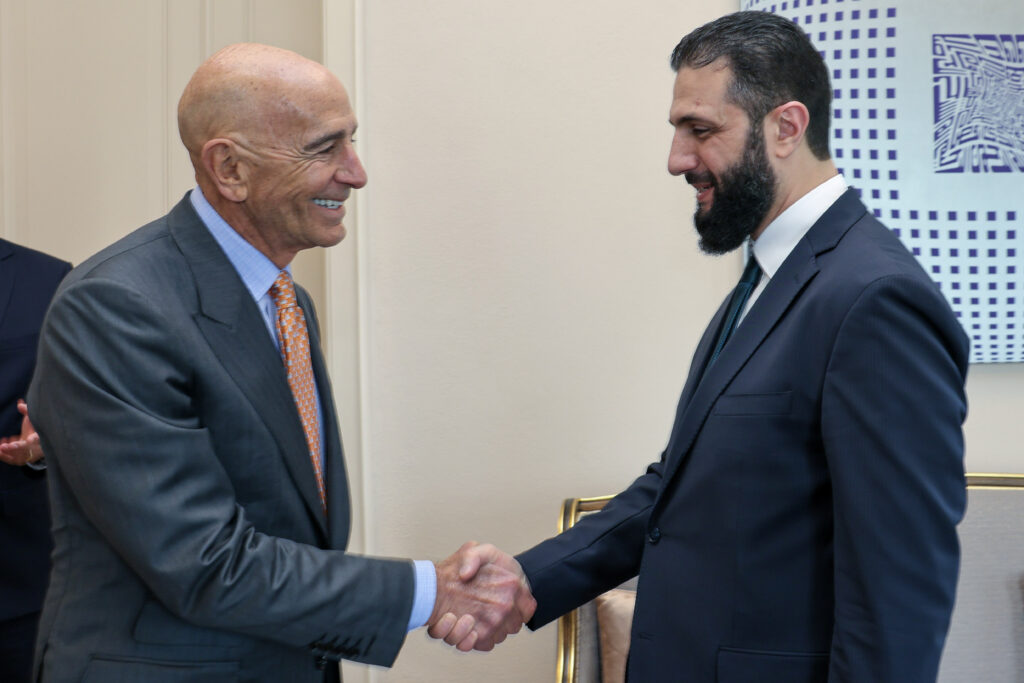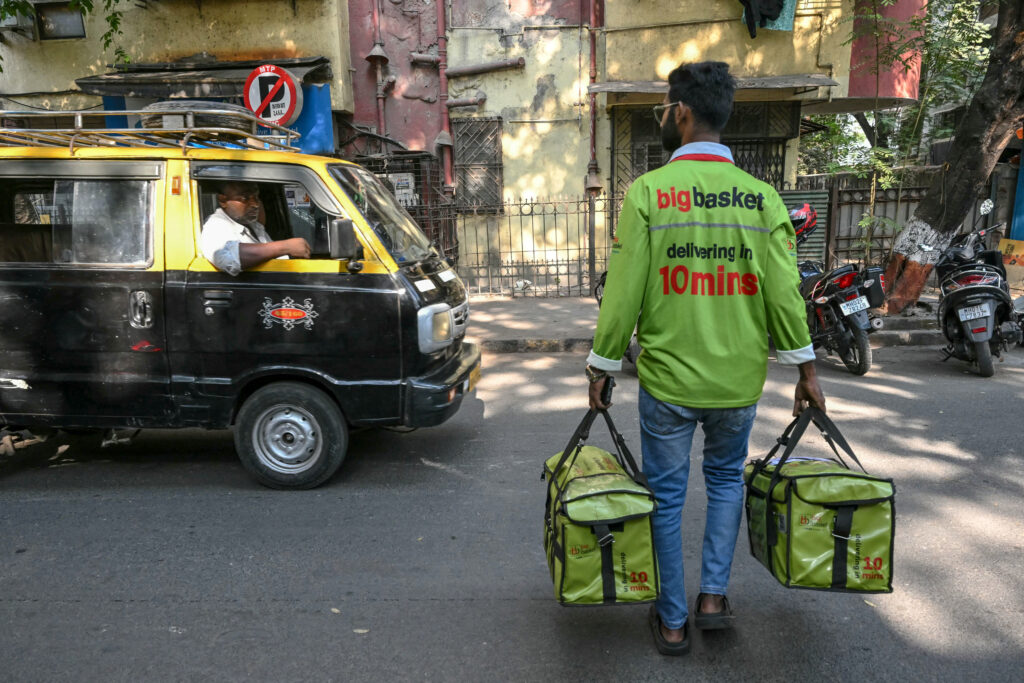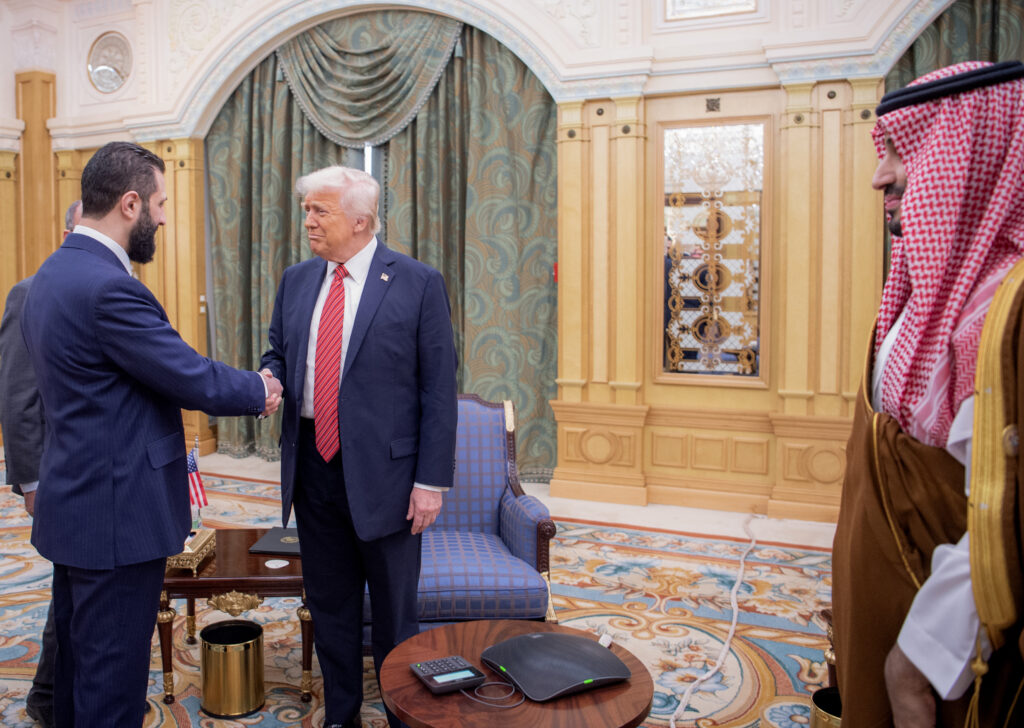Syria to help locate missing Americans: US envoy
Syria’s new authorities have agreed to help the United States locate and return Americans who went missing in the war-ravaged country, a US envoy said on Sunday, in another sign of thawing bilateral ties.The announcement came a day after the United States formally lifted sanctions on Syria, ending more than a decade of diplomatic freeze.Relations have steadily improved since former president Bashar al-Assad was overthrown by an Islamist-led offensive in December.”The new Syrian government has agreed to assist the USA in locating and returning USA citizens or their remains,” US special envoy for Syria Tom Barrack wrote on X, describing it as a “powerful step forward”.”The families of Austin Tice, Majd Kamalmaz, and Kayla Mueller must have closure,” he added, referring to American citizens who had gone missing or been killed during Syria’s devastating civil war that erupted in 2011.Tice was working as a freelance journalist for Agence France-Presse, The Washington Post, and other outlets when he was detained at a checkpoint in August 2012.Kamalmaz, a Syrian-American psychotherapist, was believed to have died after being detained under the Assad government in 2017.Mueller was an aid worker kidnapped by the Islamic State group, which announced her death in February 2015, saying she was killed in a Jordanian air strike, a claim disputed by US authorities.”President (Donald) Trump has made it clear that bringing home USA citizens or honoring, with dignity, their remains is a major priority everywhere,” said Barrack, who also serves as the US ambassador to Turkey.”The new Syrian Government will aid us in this commitment,” he added.- Americans killed by IS -A Syrian source aware of the talks between the two countries told AFP there were 11 other names on Washington’s list, all of them Syrian-Americans.The source added that a Qatari delegation began this month, at Washington’s request, a search mission for the remains of American hostages killed by IS.Britain-based war monitor the Syrian Observatory for Human Rights meanwhile said that “the Qatari delegation is still searching in Aleppo province for the bodies of American citizens executed by IS”.Two US journalists, James Foley and Stephen Sotloff, were videotaped in 2014 being beheaded by a militant who spoke on camera with a British accent.El Shafee Elsheikh, a jihadist from London, was found guilty in 2022 of hostage-taking and conspiracy to murder US citizens — Foley and Sotloff, as well as aid workers Peter Kassig and Kayla Mueller.The formal lifting of US sanctions also coincided with Syria’s new authorities reshuffling their interior ministry to include fighting cross-border drug and people smuggling, as they seek to improve ties with the West.The lifting of sanctions paves the way for reconstruction efforts in the war-torn country, where authorities are relying on foreign assistance to help foot the enormous cost of rebuilding.The sanctions relief is on condition that Syria does not provide a safe haven for terrorist organisations and ensures security for religious and ethnic minorities, the US Treasury Department said.Trump shook hands with Syria’s jihadist-turned-interim President Ahmed al-Sharaa earlier this month during a visit to Saudi Arabia.- Sharaa in Turkey -Barrack’s statement comes a day after he met Syrian interim president, Ahmed al-Sharaa, in Istanbul, during Sharaa’s third visit to Turkey since the fall of Assad.The Syrian presidency said on Sunday that Sharaa and his accompanying delegation met with Turkish officials in Ankara, including Vice President Cevdet Yilmaz and financial officials.Yilmaz said in a statement that they discussed “deepening our economic cooperation in the new period”, adding that his country will “continue to provide all kinds of support to the Syrian people in their peace, development and reconstruction process”.As part of Syria’s efforts to strengthen its institutions, the interior ministry appointed new security chiefs in 12 provinces on Sunday.It did not say how the chiefs were chosen nor did it share much information about them, but the list includes former security officials in Hayat Tahrir al-Sham, the Sharaa-led Islamist group that spearheaded the December offensive.The new authorities faced criticism when military appointments in December included six foreign fighters.After meeting Sharaa in Riyadh this month, US President Donald Trump demanded that “foreign terrorists” leave Syria.Damascus had previously told Washington in a letter that it would “freeze the promotions of foreign fighters” and form a committee to review previous promotions, according to a Syrian source with knowledge of the letter.The source requested anonymity as they were not allowed to brief the media on the topic.




